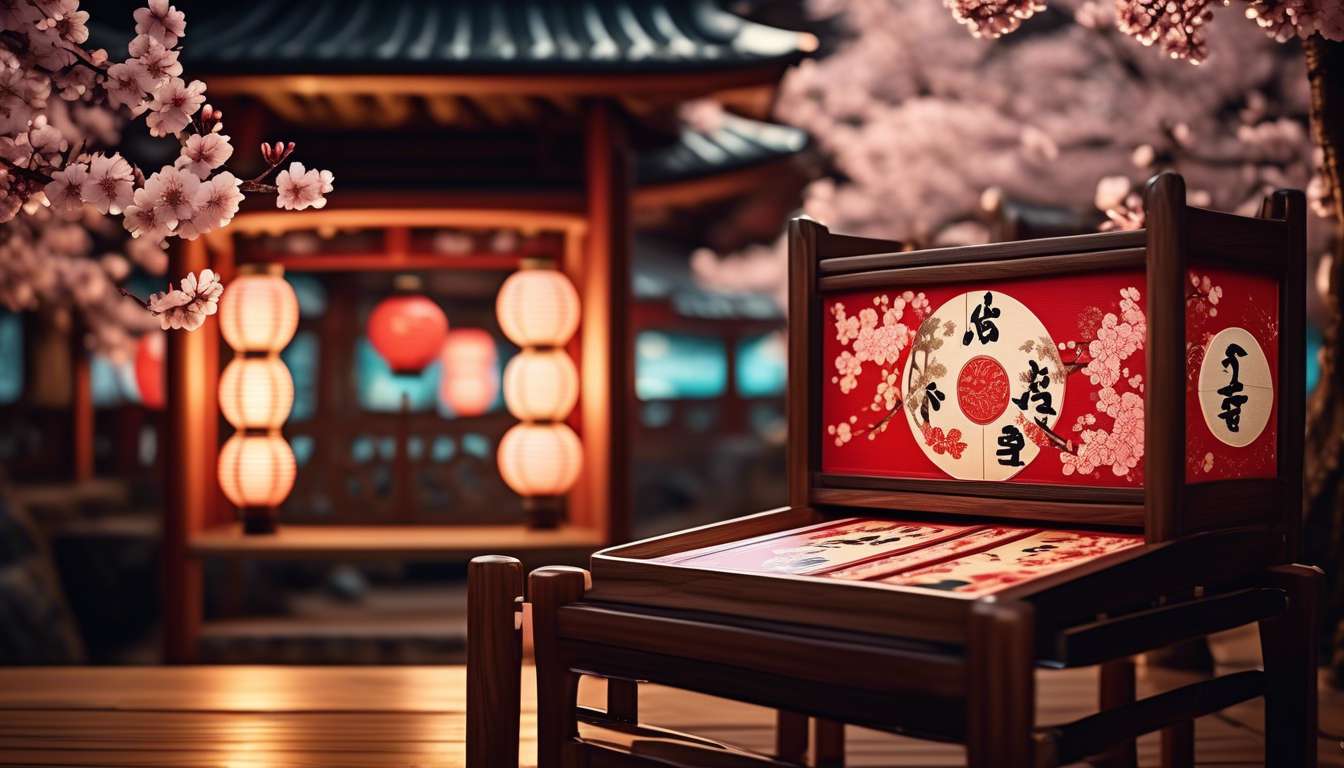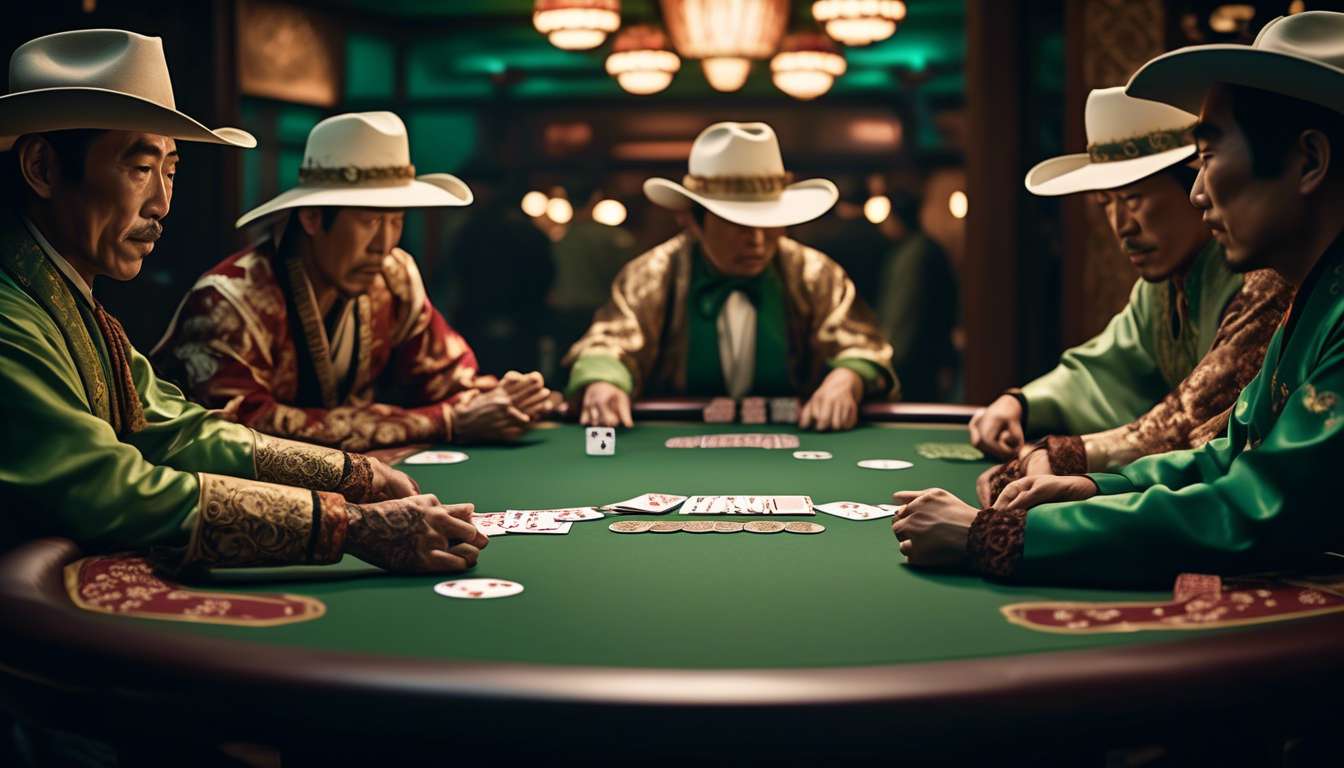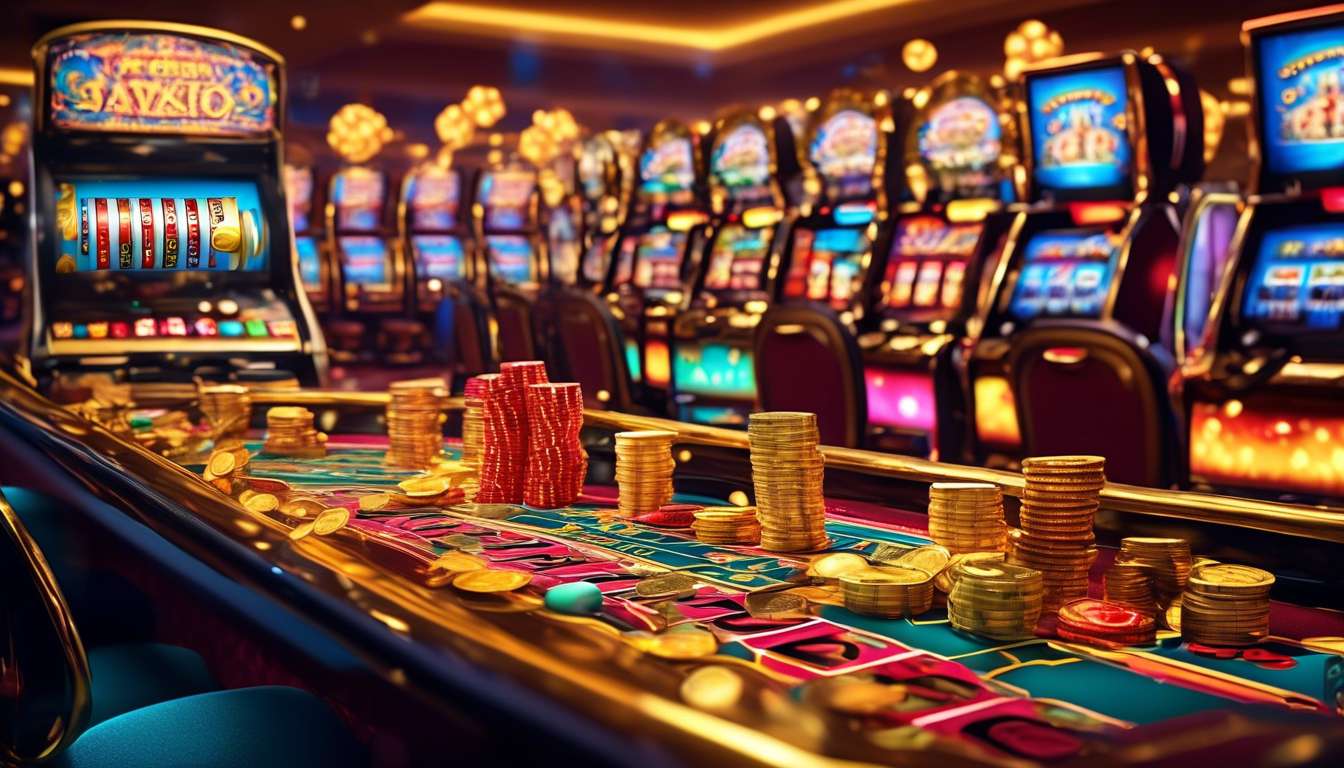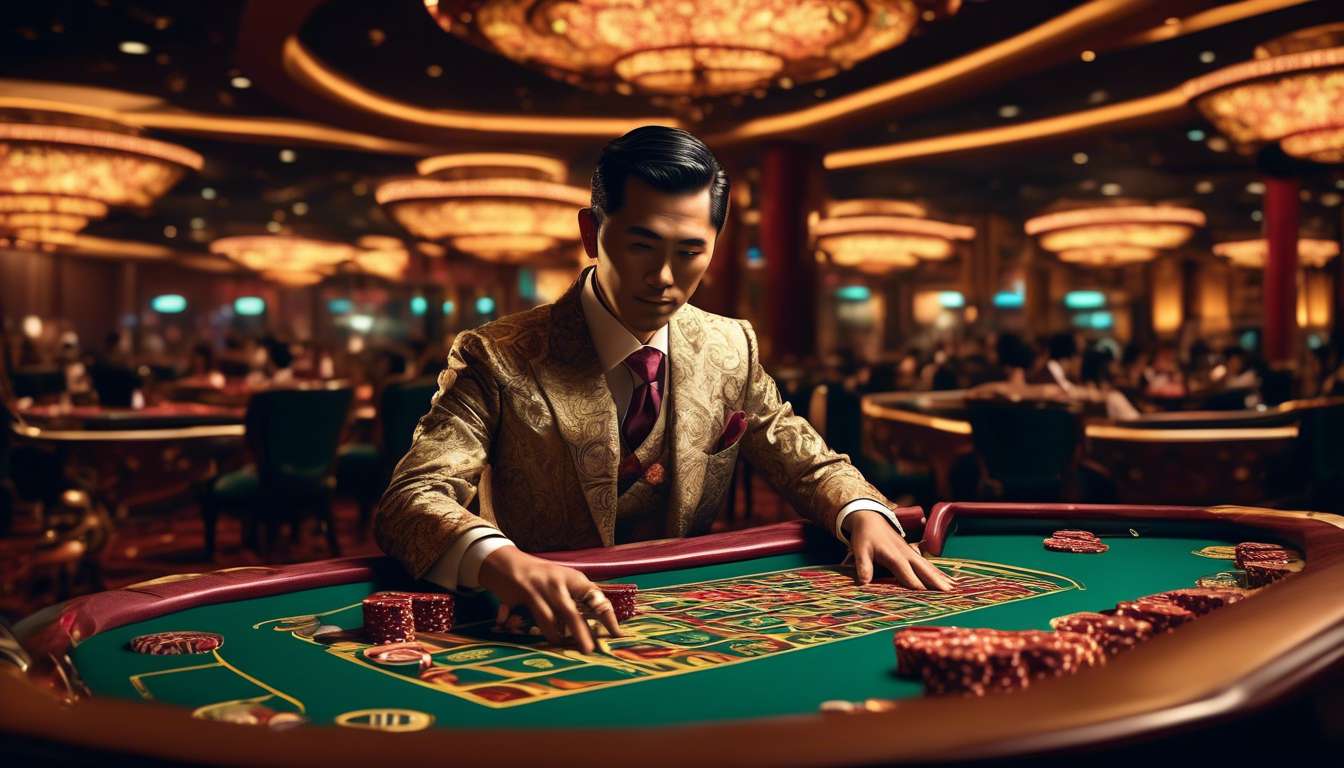As we embark on a journey through the fascinating history of casino games in Japan, we find ourselves intrigued by the rich tapestry of cultural influences and societal shifts that have shaped this unique aspect of Japanese entertainment.
Together, we delve into a world where traditional pastimes and modern innovations intersect, revealing a narrative that stretches back centuries. From ancient times, when gambling was woven into the fabric of social gatherings, to the contemporary landscape of pachinko parlors and integrated resorts, we see how these games have evolved alongside Japan’s dynamic societal changes.
Our exploration highlights the resilience and adaptability of gaming traditions, reflecting broader historical events and cultural shifts. By examining the legal, economic, and cultural factors that have influenced the development of casino games in Japan, we gain a deeper understanding of their enduring appeal.
Key Points:
-
Historical Evolution:
- Gambling as part of ancient social gatherings.
- Transition to modern pachinko parlors and integrated resorts.
-
Resilience and Adaptability:
- Reflection of broader historical events.
- Adaptation to cultural shifts.
-
Influencing Factors:
- Legal considerations.
- Economic impact.
- Cultural influences.
By understanding these elements, we appreciate the intricate balance between preservation and innovation that continues to define the place of casino games in Japanese society.
Early Gambling Practices
In ancient Japan, gambling practices began with simple dice games and evolved as part of cultural rituals. We, as a community, have always found ways to connect through shared experiences, and these games were no exception. They served as a means of coming together, celebrating, and sometimes, testing our fortunes.
As time passed, these early games laid the groundwork for more complex forms of gambling that we recognize today. One such evolution is Pachinko, a game that became a cultural staple and a beloved pastime. Although it may not seem like traditional gambling, Pachinko’s appeal lies in its mix of skill and chance, captivating many of us across generations.
Despite its popularity, the journey towards legalization has been a complex one. For years, we navigated the intricate legal landscape, seeking to legitimize what was already a significant part of our culture.
Today, as we reflect on these early practices, we see the foundations of a rich and storied gambling tradition in Japan.
Influence of Feudal Era
During the Feudal Era, gambling activities underwent a transformation, evolving into both a form of entertainment and a tool for political and social maneuvering. Gambling was deeply woven into the fabric of society, influencing alliances and decisions.
The Samurai Class:
- Often engaged in gambling
- Leveraged their luck and skill to bolster reputations and networks
Common Folks:
- Used gambling as a form of escape
- Found community through shared activities
Though Pachinko, as we know it today, didn’t exist back then, similar games of chance were popular. These games laid the groundwork for the gambling culture that would evolve in Japan.
- The notion of legalization was far from reality, as gambling was officially banned.
- Despite the ban, gambling thrived in clandestine settings.
- These games created bonds that transcended social classes.
This era set the stage for the complex relationship with gambling that continues to shape our society today.
Meiji Restoration Impact
The Meiji Restoration radically transformed Japan’s social and economic landscape, influencing how we engaged with games of chance. As Japan opened to Western influences, our society began embracing new forms of entertainment, including gambling. We found ourselves captivated by games that promised excitement and camaraderie.
The government, recognizing this shift, sought to regulate these activities, balancing modernization with cultural preservation.
During this period, Pachinko emerged as a favored pastime. It resonated with us by blending traditional Japanese aesthetics with Western gaming influences. Pachinko parlors became communal spaces where we gathered, fostering a sense of belonging and shared excitement.
While gambling was largely restricted, the unique nature of Pachinko allowed it to thrive within legal boundaries, offering a form of entertainment that was both familiar and novel.
The legalization of certain gambling activities was a testament to our adaptive spirit. We navigated the changing tides, ensuring that our love for games of chance remained a cherished part of our evolving culture.
Pachinko’s Rise in Popularity
Over the years, we’ve witnessed an incredible surge in Pachinko’s popularity, transforming it into a cultural phenomenon that captivates countless enthusiasts across Japan. As a unique blend of gambling and entertainment, Pachinko offers a sense of excitement and community that draws us together. We find ourselves not just playing a game, but becoming part of a larger cultural tapestry that connects us through shared experiences.
Pachinko parlors have become a common sight in Japan, and their rise in popularity is nothing short of remarkable. This enthusiasm for Pachinko has roots in the post-war era, when it grew from a simple pastime into a beloved national activity. With its enticing gameplay and the social aspect it brings, Pachinko attracts players from all walks of life.
While gambling remains a complex topic in Japan, the allure of Pachinko continues to thrive. Its semi-legal status has sparked discussions about legalization, highlighting its significant impact on culture and society.
Legalization and Regulations
In recent years, we’ve seen a growing debate over the complex legal landscape surrounding casino games in Japan. As a community, we’re keenly aware of how deeply ingrained Pachinko is in our culture, yet we’ve long been held back by strict gambling laws. Despite Pachinko’s widespread acceptance, it operates in a gray area, not officially classified as gambling due to its unique prize exchange system.
However, the winds of change are upon us. The government has taken significant steps towards legalization, recognizing the potential benefits of a regulated casino industry. In 2018, the Integrated Resort (IR) Implementation Act was passed, paving the way for legal casinos within designated areas.
This move has sparked hope among us for a more inclusive and transparent gambling environment. We find ourselves at a crossroads, balancing tradition with modernity, as we embrace the possibilities that come with these changes.
Together, we’re shaping a new era for casino games in Japan.
Economic Significance
The burgeoning casino industry in Japan has the potential to significantly boost our economy by creating jobs and attracting international tourists. With gambling now legalized, we’re on the cusp of a new era where our communities can thrive.
Economic Benefits:
- The anticipated influx of tourists will increase demand for local businesses, such as:
- Hotels
- Restaurants
- This will foster a sense of prosperity and belonging among us.
Cultural Integration:
- Industries like Pachinko have already ingrained themselves into our cultural fabric, providing both entertainment and employment.
Opportunities from Legalization:
- Development of integrated resorts that combine casinos with cultural attractions.
- Positioning Japan as a unique destination on the global stage.
By embracing these changes, we can create a more vibrant economy that benefits everyone.
Potential Benefits of Tax Revenue:
- Reinvestment into infrastructure
- Enhancement of social services
Together, we’re embarking on a journey that could redefine our economic landscape for the better.
Evolution of Gaming Culture
Over the years, we’ve seen a fascinating transformation in Japan’s gaming culture, blending traditional pastimes with modern innovations. Gambling, deeply rooted in our cultural fabric, has evolved, with games like Pachinko becoming emblematic of this shift.
Pachinko parlors, vibrant and bustling, have long stood as social hubs where we gather, transcending mere gambling into a shared experience.
As the conversation around legalization gains momentum, we’re witnessing a growing acceptance of casino games. This shift reflects our desire to harmonize with global practices while nurturing our unique cultural identity. Legalization could bring about new opportunities, allowing us to embrace a broader spectrum of gaming experiences.
We find ourselves at a crossroad, eager to explore what these changes mean for us and our communities. As we continue to adapt, it’s essential we remember our roots while welcoming new possibilities.
Together, we can shape a gaming culture that’s:
- Inclusive
- Innovative
- Distinctly ours
Globalization and Future Trends
As we integrate more with the global landscape, Japan’s gaming industry is poised to expand its horizons by embracing international influences and emerging trends. We’re witnessing a shift in how gambling is perceived, with efforts underway to modernize and potentially legalize certain forms of it. The allure of global casino games is drawing us into a new era, where Pachinko, the iconic Japanese pastime, may soon share space with more traditional casino offerings.
In this evolving environment, we can explore a future that blends the traditional with the contemporary. Legalization discussions are becoming more prominent, hinting at a landscape where both Pachinko and other gambling activities could coexist, offering us varied experiences.
By engaging with global trends, we’re not just reshaping our gaming culture but also cultivating a broader sense of community.
Together, we can look forward to a future where Japan’s gaming industry is not just national but a part of the global tapestry.
What are some traditional Japanese games that influenced modern casino games?
We can see the influence of traditional Japanese games on modern casino games. Some games like hanafuda and pachinko have inspired elements found in popular casino games today.
These traditional games showcase a rich cultural heritage that continues to impact the gaming world. The fusion of these influences adds a unique flavor to the casino experience, blending old traditions with new innovations for an exciting gaming environment.
How did cultural attitudes toward gambling change throughout Japanese history?
Historical Shift in Cultural Attitudes Toward Gambling in Japan
We’ve seen a shift in cultural attitudes toward gambling in Japan throughout history. Initially, there was early acceptance and integration of games into social events. However, over time, stricter regulations were introduced due to concerns about societal harm.
Regulatory Changes and Societal Concerns
As laws were enacted to curb excessive gambling and protect citizens, attitudes have become more cautious. This reflects a growing awareness of the potential negative impacts of gambling on society.
Ongoing Debate and Economic Considerations
Despite these concerns, there is an ongoing debate about finding a balance that respects tradition while adapting to modern influences. The potential economic benefits of gambling continue to be a significant consideration in this discussion.
What role did international influences play in shaping Japan’s casino game industry?
International influences have played a significant role in shaping Japan’s casino game industry.
They have introduced:
- New games
- Advanced technologies
- Innovative business strategies
These outside influences have modernized and diversified the gaming landscape in Japan, attracting both domestic and international players.
As a result, the industry has become more dynamic and competitive, offering a wider range of options for gamers to enjoy.
Conclusion
Early Gambling Practices and Influence of the Feudal Era
The history of casino games in Japan is deeply rooted in early gambling practices that date back centuries. During the feudal era, various forms of gambling were popular among different social classes, significantly influencing the gaming culture in the country.
Impact of the Meiji Restoration
The Meiji Restoration brought significant changes to Japan, including shifts in cultural and recreational activities. This period played a crucial role in shaping modern gaming practices and set the stage for future developments in the casino industry.
Rise of Pachinko and Legal Developments
With the rise of Pachinko, a game that has become synonymous with Japanese gaming, the landscape of the casino industry began to transform. This period also saw the introduction of regulations and legalization efforts, which have helped the industry gain economic significance.
Globalization and Future Opportunities
Looking ahead, globalization will continue to impact Japan’s gaming landscape by introducing:
- New trends
- Opportunities for growth
- Innovative gaming technologies
Exciting Times for Japan’s Casino Gaming Scene
The future holds exciting possibilities for Japan’s casino gaming scene, with potential for expansion and increased international influence. The industry is poised for growth, driven by both domestic interests and global interactions.




